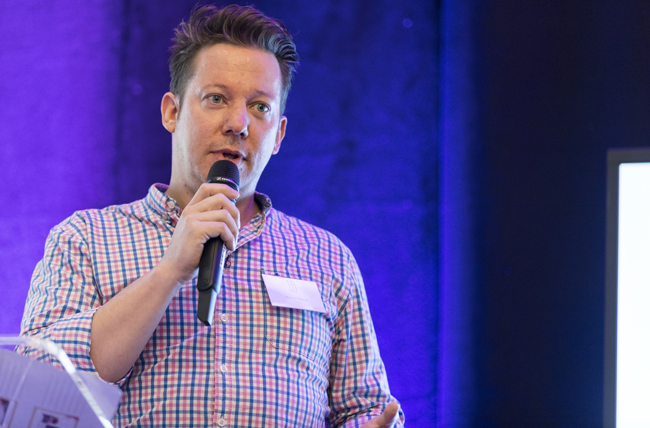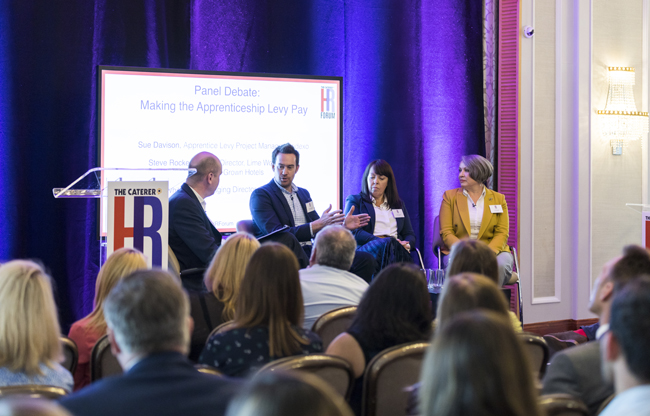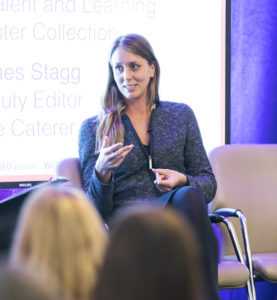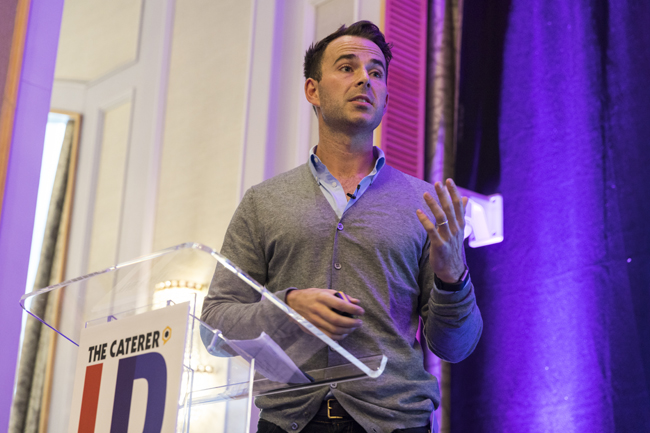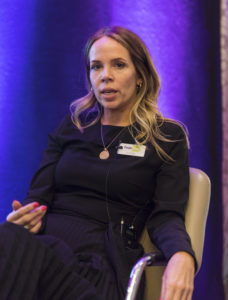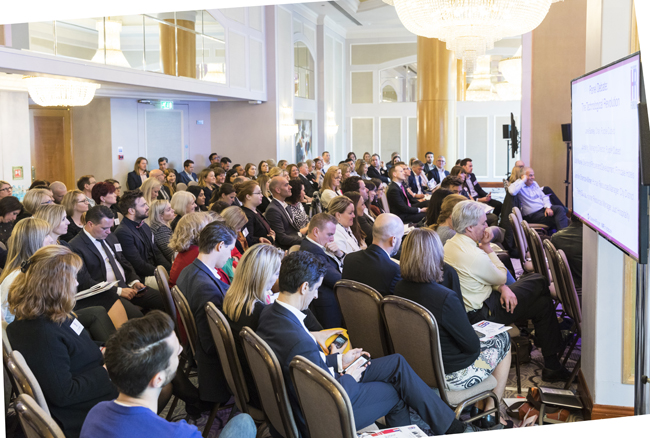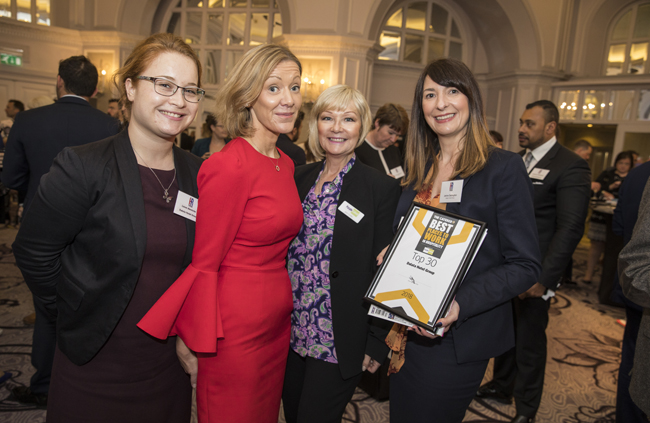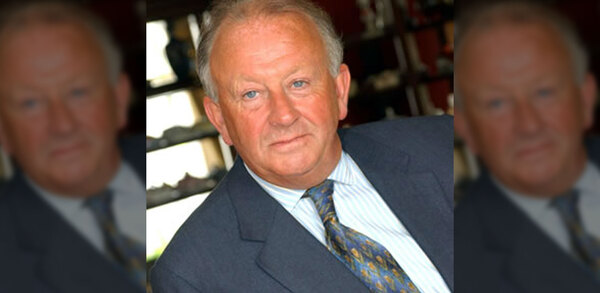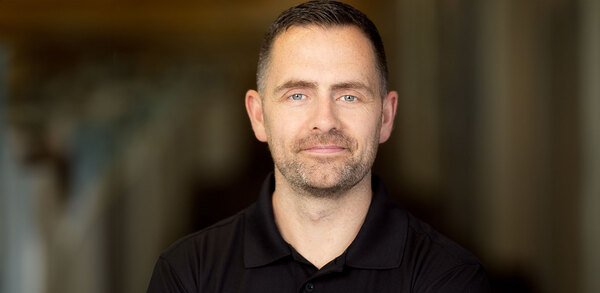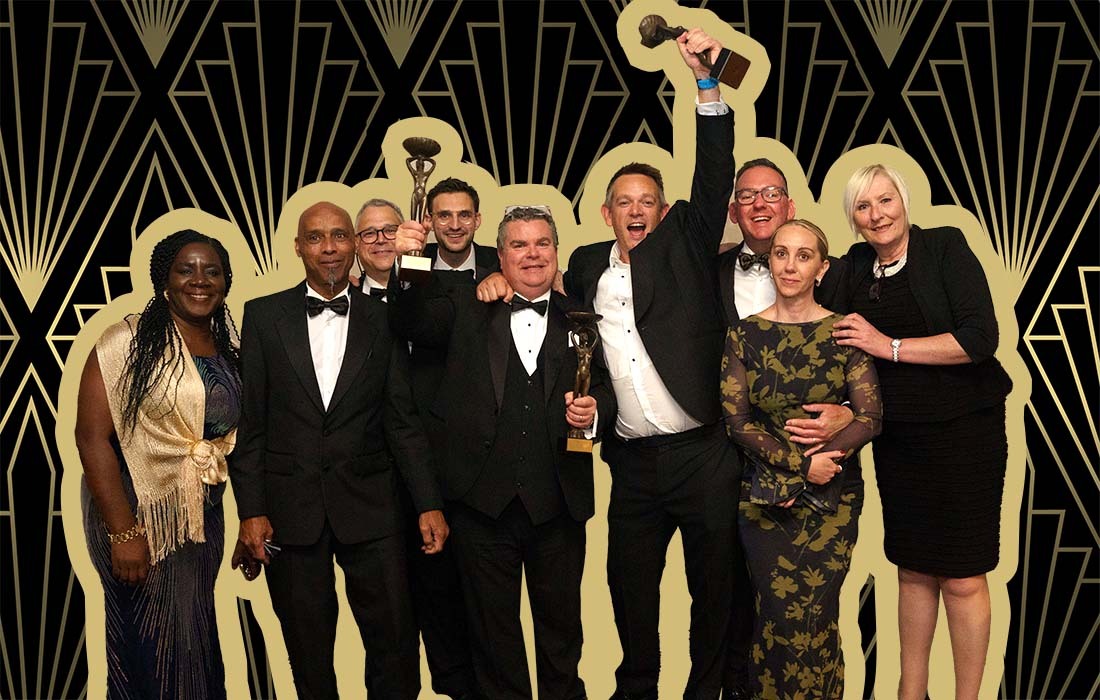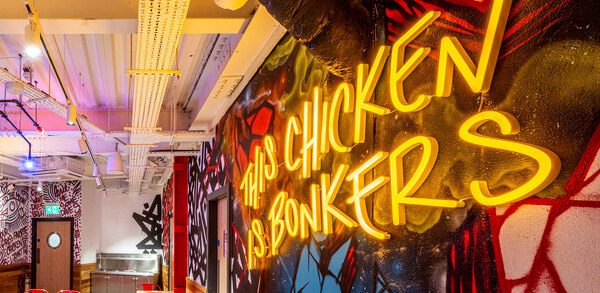HR Forum: How to attract talent
There was an overwhelming theme at this year's The Caterer
Keynote: how singing on the job, parent shifts and yoga engage staff at Leon Marco Reick, people director at Leon, opened the HR Forum by challenging employersâ reliance on traditional talent pools. He explained that the healthy fast-food group strives to match the consumer brand with its employment strategy by making hard work more fun.
The audience was intrigued to hear that one initiative to achieve both these objectives is dubbed Fish â" a reference, Reick said, âto what you feed a dolphin to get it to jump out of the water and performâ. For instance, Leonâs West End outlets are well-placed for Theatreland and many young, hopeful performers also take jobs as waiters, so the company advertises jobs in The Stage magazine. It âauditionsâ waiting staff who can sing and they do so while they are working â" allowing them to do what they love.
It is also helping to strengthen wellbeing principles.
For instance, the company converted a space above a West End restaurant to use as a fitness studio and asked the qualified fitness instructors among its restaurant teams to work one shift teaching a class â" and get paid for it.
âIt is cost-effective to run and, from the point of view of team engagement, it makes a big difference,â says Reick. âIn the first six months, staff made 1,000 visits â" and we have 1,000 employees.â
The now 50-strong chain started in 2004, but Reick says it still operates like a small start-up, putting work-life balance and staff wellbeing high on its agenda, with initiatives such as its Eat Well, Live Well conference for employees staged four times a year. It also offers âparent shiftsâ to fit in with school hours,
which is particularly helpful for single parents and makes business sense in busy hours.
âAll these things are normal in a start-up, where the business is small and   everyone knows each other, so they muck in and be flexible,â says Reick. âFlexible working should be a normal thing.â
Panel debate: making the apprenticeship levy pay
Itâs only a year old, but itâs fair to say that the apprenticeship levy has an image problem. Delegates were, therefore, keen to hear views from operators who are making it work for their business.
The debate was chaired by The Caterer deputy editor James Stagg and the panel included Sue Davison, learning and development business partner and apprenticeship levy project manager at Sodexo; Steve Rockey, people director at Lime Wood Group and Home Grown Hotels; and Jill Whittaker, managing director at HIT Training.
Do you see it as a tax on your business?
Steve Rockey (SR): We have continued to invest in apprenticeships. It makes sense as our hotels are [in rural locations]. The people we train now will be opening our hotels in future.
We are concentrating on back of house, investing time and effort into 15 kitchen apprentices. The more you put in, the cheaper it is per apprentice. If you were paying an agent to find a chef, you would be throwing your money away, but if you invest in a keen 16-year-old you may keep them for five years or more, which is great. We now feel in control and are looking to launch a front of house development programme to maximise the levy. It puts you front and centre because you are paying for it.
Sue Davison (SD): The levy has been a big stepchange and the organisation has been through a steep learning curve. We have changed our processes. But it has also been an enabler as we have made our Culinary Academy a reality and we have partnered with HIT Training.
We are also getting results from the higher level apprenticeships â" we have an employee on Finance Level 7, for example. Another left university early and is now finishing his degree and is engaged with us.
It has been a challenge in a multi-site organisation. But it would be a travesty not to use this pot of money and get a return on investment.
Jill Whittaker (JW): The levy has put apprenticeships on the agenda at board level. There are now apprenticeships from Level 2 to degree level. Staff want to see if you are going to invest in them, so it helps with retention and with growing your own talent. There are a raft of reasons why you would invest. And from May your suppliers can pass on a 10% contribution because a few food producers can use the levy.
Do the new apprenticeships have value?
JW: Apprenticeships are more recognised now. Previously, apprenticeships in kitchens were focused on craft skills, but there is now also a focus on kitchen management.
SR: Our new front of house programme will look at supervisor growth and soft skills â" the classic things that are missing in someoneâs experience. And there is a broader variety of apprenticeships, with programmes for accounts and so on. It is an incredible opportunity.
Our senior team see the value of it commercially and in terms of helping school leavers to step into a career.
Do you get more school leavers than staff applying for apprenticeships?
JW: Of our Level 4 general managers, nearly 50% came via Level 3 and 30% of those via Level 2, so people are continuing to use apprenticeships throughout their career. About 20% are from education. But apprentices can be all ages.
Redefining talent
According to Albert Einstein, âeverybody is a genius. But if you judge a fish by its ability to climb a tree, it will live its whole life believing it is stupid.â
Wigley shared what the HR team discovered after two years of research: âWe spoke to all the HR teams and managers and the message was clear â" we want to allow team members to drive their own development. So we changed our training modules and performance reviews and looked at our HR tools.â
The key was to make training accessible to all. To draw talent out and develop the many rather than the few, the HR team encourages open conversations on what employees want to do by getting them to say what they enjoy at work. Once their goal is identified, the team looked at how the individual learns best â" through, for instance, shadowing or completing a training module.
âBreadth of experience is as important as progressing up the levels. Itâs about how you work as a team and how you create opportunities â" for instance, enabling a team member to stand in for you at meetings,â says Wigley. âThink creatively and think long-term. We felt there needed to be more options in training â" it will evolve forever.â
Bridging the engagement gap
With recruitment giving most employers a headache nowadays, many are quite rightly reaching for a staff engagement manual.
Unsurprisingly, then, there was a hum of anticipation when Dominic Taylor, head of enterprise at employee engagement platform Reward Gateway, took the stage.
He cited a project at Edwardian Hotels, where 2,300 employees across 12Â locations and with differing shift patterns had to be brought together after a rebranding. This was achieved through creating an internal brand and matching that to the employee engagement hub.
The My Edwardian hub â" featuring everything from employee discounts to financial advice to company values â" launched in February 2017.
The results include an increase in personal recommendations for roles and in registrations.
In addition, projected employee turnover for 2017 versus 2016 saw a 20%Â reduction.
And to top it all, Edwardian won Reward Gatewayâs Engagement Excellence Award 2017.
The technical revolution
Purple Cubedâs Jane Sunley, chair, led the discussion with Jo Harley, managing director at Purple Cubed; Julia Murrell, director of people and development at Firmdale Hotels; Jennifer Sharrock-Milner, HR manager at City District; and Felicity Barnes, HR manager at Just Hospitality.
During the discussion, Harley reminded delegates that the General Data Protection Regulation (GDPR) is coming into force on 25 May.
What systems do you have in place?
Julia Murrell (JM): I started at Firmdale three years ago. We have 1,300 people in London, so I wanted to create a central overview on communication and feedback. We implemented Talent Toolbox software, a digital employee engagement and progression tool, and also launched our people brand: âLove what you doâ.
This gave us our own look, feel and direction. Next, I wanted to bring learning and development into one place, so we brought in the Flow learning and development solution. We got Flow and Talent Toolbox people together to create a seamless experience because we needed it to be easy for people to use.
Weâve seen success, with an average of 6,000 hits on the Talent Toolbox dashboard rising to 17,000. But the journey is not over. We are implementing single sign-in and launching a chat app linked through the system to a phone or PC. When implementing technology you need to ensure that there is just one place for staff to go where they can see what they are being paid, or swap rotas.
Felicity Barnes (FB): We are getting Flow, but we have fewer than 100 staff and a small budget. One thing we have found simple and effective is to create a WhatsApp group for everyone across all sites. We can talk and send photos or say happy birthday and interact or offer recognition. Itâs simple, but it works well.
Jennifer Sharrock-Milner (JSM): We also use Flow. Everyone is on Facebook and Twitter and so staff expect a communications platform that they can use, especially as our sites are geographically dispersed. Our management
training underlines that engagement is all about taking time to listen to staff and that if you can keep retention high, you will save money.
How are you engaging people?
JSM: If you have directors who believe in it, it filters through. Managers need to make staff feel valued and ask them what they think on a day-to-day basis. If it isnât coming from the top, you need to make a presentation [to your board] and give them examples of how engagement can improve efficiency and increase sales.
Jo Harley (JH): If you have a set of values the people you recruit will work in the same direction.
What role will artificial intelligence have?
JH: Technology is an enabler to help you collect data, so you can improve succession planning, fill shifts, measure how happy your staff are, check whether they turn up on time and are performing well. These analytics can inform decisions and help you to grow the business.
Jane Sunley (JS): Hilton is trialling Connie, anAI concierge, and Citizen M has auto check-in. It works in some brands. You can apply for a job at Hilton through a chatbot, and apparently Wolfgang Puck would like a robot to chop his vegetables so that his chefs can be more creative. But although AI can automate the bits we donât want to do, hospitality is less likely to be affected by AI than other industries.
JH: Who knows. Human contact might be less important for future generations. Technology is moving faster than the decisions being made.
JSM: People are our business, so technology is limited to administration and the basic tasks. It has been proven that line managers have the biggest impact on whether staff are happy.
FB: Technology can be used to inform a decision, but not to make it for you.
JM: I have a team of recruiters looking at applications. By picking up the phone they can speed up recruitment and ensure quality. Automating that would be a worry.
JS: Make technology work for you â" donât work for it.
Whatâs your top tip for engagement?
JM: Ask your staff what engages them. Action it or put a plan in place to implement it.



